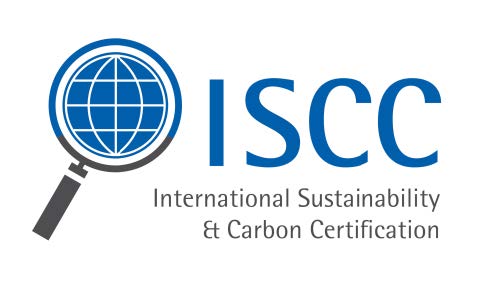Month: November 2022
When Kiran Valluri was 10 years old, one of the world’s worst industrial accidents happened in her home country of India. A gas leak at a pesticide plant killed at least 2,000 people in the central city of Bhopal. She learned about the disaster from her parents, whose morning routine included reading the newspaper to her as she prepared for school.
Kiran felt a powerful urge to help the victims, but over the years, Bhopal faded from her memory. Her interest in mathematics, physics and chemistry inspired her to major in civil engineering in college.
“That’s when everything came back to me about the Bhopol incident,” said Kiran, Orion’s environmental, health and safety leader for the Americas. “That’s why I chose environmental engineering for an MS degree. I’ve worked in the environmental field ever since then.”
Kiran shared her story during a panel discussion at Orion’s principal executive offices in Spring, Texas. The event celebrated the U.N.’s International Day of Women and Girls in Science. The wide-ranging discussion included topics such as overcoming gender stereotypes, pursuing promotions and making your voice heard in meetings.
The panel was moderated by Nicole Lewis, Orion’s senior director of operations in the Americas, who has a chemical engineering degree, MBA and 20 years of experience in industry. Also on the panel was Jennifer Stroh, Orion’s director of specialty sales and marketing for the Americas. She has a B.S. in chemistry and a Ph.D. in materials science and engineering.
Not ready yet
Women are often denied a promotion because they are told they are “not ready yet.” The panelists discussed how they have overcome such a misperception or bias against them.
“It’s important to find your network, find your group, find your mentor,” Nicole said. “I was fortunate early on in my supervisory roles to find someone who believed in me and would work with me to make sure I was ready. And I still stay in touch with that guy to this day. We probably talk once every couple of weeks.”
Nicole added she also took some risks in her career. “When people said, ‘Hey, I don’t think you’re ready,’ I dug in my heels, and I said, ‘I know I’m ready, and I know I can do it,’ and I did it. Sometimes you have to take those scary moves.”
Kiran noted that men often get promoted for their potential, while women must prove themselves to get the same things. “I hate to say that. You have to volunteer and do additional work. You need to work hard,” she said.
Also important is building good relationships — not only with your direct supervisor but also with a variety of different members of the leadership and management team, Jennifer said.
“Throughout my career, I have made a variety of what I call unsolicited pitches,” she added. “Seeing a problem, digging through the details, realizing how it can be done better, then telling anyone who would listen.”
Becoming a plant manager
The panel discussed the challenges women face becoming a plant manager in the chemicals industry. Nicole, who has worked in the role, said she has seen a shift over the years. Orion has three plant managers who are women.
“Looking at when I got out of school and started working in plants, being the only woman there, if I wore my coveralls out into the plant, all the contractors would say, ‘Who’s this woman in the plant? What is she doing here?’”
Although there has been progress, she said, women still have a ways to go. “I had the opportunity to go to a Society of Women Engineers conference this past year,” Nicole added, “and I met quite a few young engineers who said, ‘I’ve never met a female plant manager.’”
Claiming space in meetings
Studies have reported that during meetings, men interrupt or talk over women much more often than women do it to men. The panelists discussed how they claim their space and protect their airtime.
“If I have a point, I will interrupt,” Kiran said, noting that keeping quiet or feeling intimidated could put the company, employees and the community at risk when it comes to environmental, health and safety issues.
Nicole tries to look on the bright side and recognize that people interrupt because they are passionate and have something to share. “I’ll write down what I want to say. When they are done, I will speak. There are many times when I say, ‘Hey, hang on, I’m almost finished, just let me finish this thought.’ You have to read your audience and understand what’s the other person’s intent.”
Jennifer added that the meeting’s leader should be cognizant that someone is getting cut off and help redirect the discussion. But there are times when you can’t win, she added, and it’s not possible to be heard in a meeting.
“For me, I say the topic isn’t over until I say it’s over, even if the meeting ends,” Jennifer said. “You can still call those individuals. You can still get your point across. Data is your friend. One of my favorite sayings at work and at home is just because you’re loud doesn’t make you right.”
HOUSTON – Orion Engineered Carbons (NYSE: OEC), a specialty chemicals company, said today it has reached a major sustainability milestone, becoming the first to achieve International Sustainability and Carbon Certifications (ISCC Plus) for multiple carbon black grades made from different feedstocks at plants in two regions of the world.
The ISCC PLUS certification involved rigorous audits of Orion’s plants and processes that confirmed the company’s compliance with high sustainability requirements. It also verified the transparency and traceability of sustainable raw materials in the company’s value chain at three plants producing the concerned grades of carbon black.

“The globally recognized certification further strengthens Orion’s position as the leader in our industry for developing sustainable solutions for our tire, mechanical rubber goods and specialty customers,” said Corning Painter, Orion’s CEO. “Earning the certification is a major achievement for the commercialization of our portfolio of sustainable products. ISCC PLUS documents to our customers that Orion continues to make progress with innovation focused on sustainability.”
The ISCC PLUS certified products include the ECORAX® Circular grades produced in Borger, Texas, and Belpre, Ohio, using pyrolysis oils from end-of-life tires. Also covered is ECORAX® Nature 200, produced in Jaslo, Poland, and based on bio-circular feedstocks.
Significantly, the certified products are similar to conventional grades and are “drop-ins” that require minimal reformulation in the complex rubber compounds used by our major tire manufacturing customers.
“No other company is making multiple grades of sustainable carbon black with different feedstocks at multiple plants across the world,” Painter added. “Introducing a broad range of products that can be used in highly demanding tire applications using such materials is a critical step to enable the transition to a circular economy for tires.”
A decade ago, Orion was the first major producer to develop and commercialize carbon black made from renewable feedstocks, such as industrial-grade vegetable oils or other oils derived from waste and residues of biological origin from agriculture or forestry.
Orion is also the only carbon black producer in the BlackCycle initiative, an EU-funded project focused on developing the production of circular carbon black.
“Our customers have shown a tremendous amount of interest in our sustainable products,” said Pedro Riveros, senior vice president for global rubber carbon black and general manager for the Americas. “Several companies have made very public statements about achieving fully sustainable raw materials by 2050, or earlier. Since rubber and carbon black are the largest raw materials in rubber compounds, replacing conventional carbon blacks with our sustainable products will largely contribute to the achievement of these commitments.”
Carbon black makes up about 30% of a typical tire by weight. The material reinforces tires, making treads more resistant to tearing, cutting, abrasion and other wear. Carbon black also plays an important role in creating tires with lower rolling resistance, which leads to increased fuel efficiency. It also enables engineers to fine tune performance and protects tires from the damaging effects of UV light.
The ISCC PLUS certification is granted by the ISCC Association, which is based in Cologne, Germany, and promotes the sustainable production of biomass, circular and bio-based materials and renewables.
About Orion Engineered Carbons
Orion Engineered Carbons (NYSE: OEC) is a leading global supplier of carbon black, a solid form of carbon produced as powder or pellets. The material is made to customers’ exacting specifications for tires, coatings, ink, batteries, plastics and numerous other specialty, high-performance applications. Carbon black is used to tint, colorize, provide reinforcement, conduct electricity, increase durability, and add UV protection. Orion has innovation centers on three continents and 14 plants worldwide, offering the most diverse variety of production processes in the industry. The company’s corporate lineage goes back more than 160 years to Germany, where it operates the world’s longest-running carbon black plant. Orion is a leading innovator, applying a deep understanding of customers’ needs to deliver sustainable solutions. For more information, please visit orioncarbons.com.
Forward-Looking Statements
This document contains certain forward-looking statements within the meaning of the U.S. Private Securities Litigation Reform Act of 1995. Forward-looking statements are statements of future expectations that are based on current expectations and assumptions and involve known and unknown risks and uncertainties that could cause actual results, performance or events to differ materially from those expressed or implied in these statements. You should not place undue reliance on forward-looking statements. Each forward-looking statement speaks only as of the date of the particular statement. New risk factors and uncertainties emerge from time to time and it is not possible to predict all risk factors
and uncertainties, nor can we assess the extent to which any factor, or combination of factors, may cause actual results to differ materially from those contained in any forward-looking statements. We undertake no obligation to publicly update or revise any forward-looking statement as a result of new information, future events or other information, other than as required by applicable law.
Contacts:
William Foreman
Director of Corporate Communications and
Government Affairs
Orion Engineered Carbons
Direct: +1 832-445-3305
Mobile: +1 281-889-7833
william.foreman@orioncarbons.com
Wendy Wilson
Head of Investor Relations
Orion Engineered Carbons
Direct: +1 281-974-0155
wendy.wilson@orioncarbons.com






